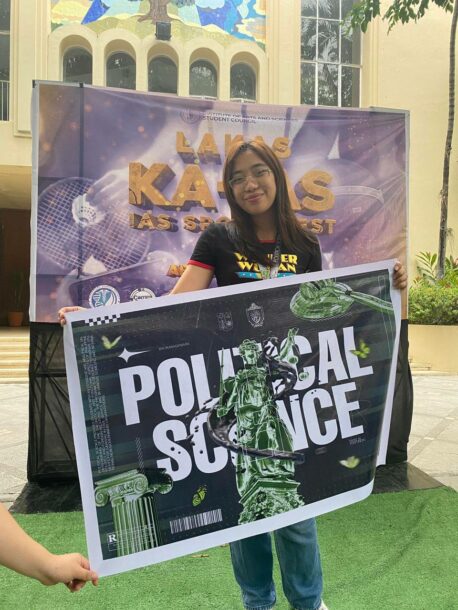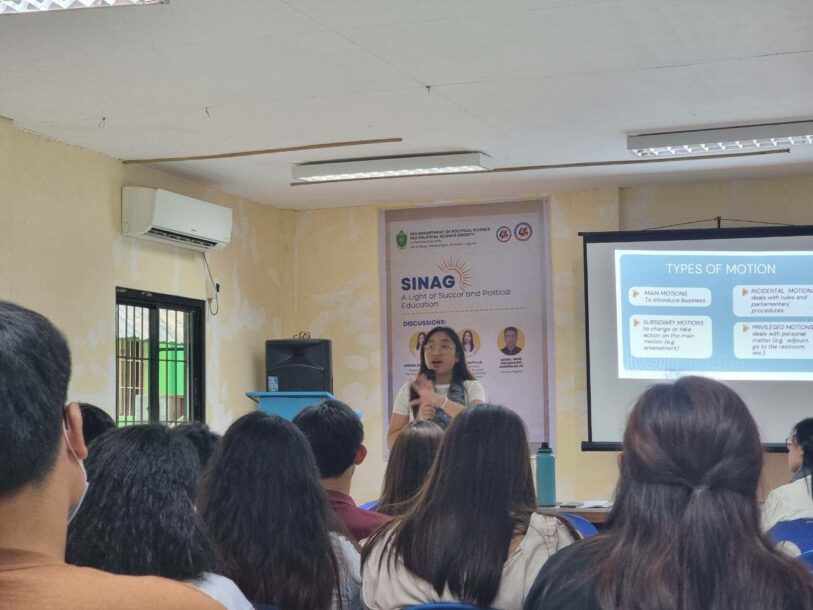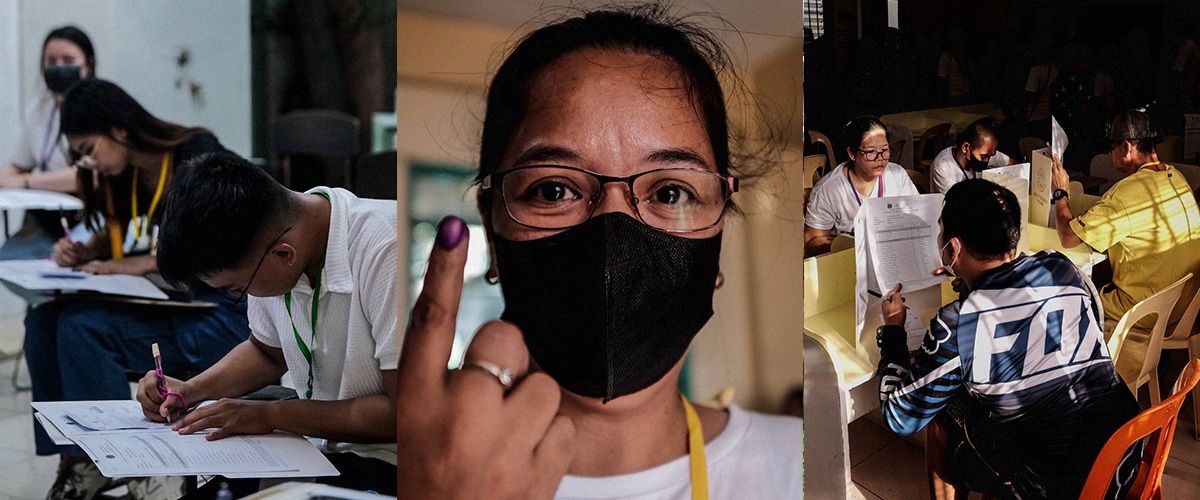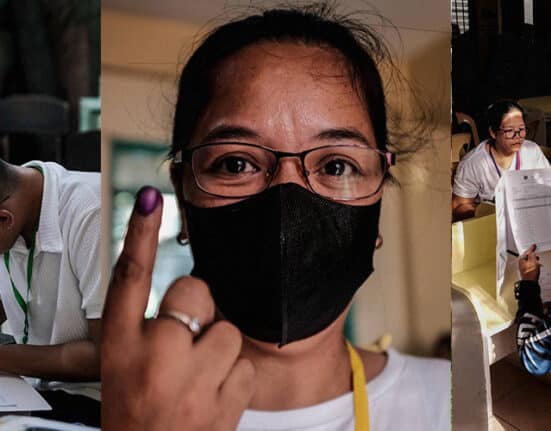BRANDING is crucial for shaping perceptions, influencing decisions, and determining election success. An effective branding strategy can considerably increase a candidate’s chances of winning at the 2025 National and Local Elections (NLE).
Political branding is the process of building a distinct identity for a politician or political party that appeals to voters. This identity includes not just the candidate’s name and image, but also their values, views, and promises made to the voters.
Given that premise, republicasia interviewed two political scientists, both of whom are now studying law, to learn more about how branding can effect a candidate’s chances in the upcoming election.
Branding is a key to winning
Mia Cantillan, 23, graduated from Cum Laude with a BA in Political Science at Far Eastern University (FEU). She also served as Secretary of the FEU Political Science Society from 2021 to 2022 before becoming President in 2022-2023.
Cantillan is currently a second-year law student at the University of Santo Tomas, Faculty of Civil Law. Given her extraordinary background as a political scientist, she believes that branding is as crucial as anything else for a politician.
“A political aspirant’s branding is similar to a beauty queen’s sash that he carries across his heart at every stage of his campaign,” said Cantillan. “It is one of the most permeating political machineries that a candidate capitalizes on in order to level with the electorate’s preference.”

Photo Courtesy: Mia Cantillan
“Filipinos often look for candidates who possess a combination of personal qualities and policy stances. For personal qualities, Filipinos tend to appreciate and value honesty and trustworthiness in their leaders— they want candidates who are transparent and accountable,” she went on to say.
More than that, Cantillan stated that Filipinos frequently support candidates with pro-poor agendas that prioritize the concerns of the poor and marginalized, indicating excellent leadership in such sectors.
“Consequently, the electorate tends to prefer a candidate who projects strong leadership, i.e., one who can make decisive decisions and inspire others., for the better execution of these policies,” Cantillan explained.
“Equipped by the foregoing qualities and stances, a candidate is looking at a positive probability of securing the eyed position,” she added.
It appeals to the masses
Meanwhile, Holly Castillo is a 23-year-old Magna Cum Laude graduate with a BA in Political Science at FEU as well. She also served as Vice President of the FEU Political Science Society in the 2023-2024 school year.
Despite being a recent graduate, the 23-year-old promptly enrolled as a Juris Doctor student at Far Eastern University Institute of Law. Branding, she believes, can help her appeal to the masses and gain an advantage during election season.

Photo Courtesy: Holly Castillo
“Different demographics call for different brand identities. With this, branding is definitely a good strategy to create an appeal to the people. First, strong branding can create a source of good rapport with Filipinos,” said Castillo.
“In areas/demographics where poverty is proliferating, candidates who possess narratives of rags to riches and even a “makataong” narrative can greatly appeal to such demographics.”
“Aside from this, branding can be a strong persuasive mechanism. When a certain brand presents powerful speeches, campaign slogans, social media postings, and even lobbying tactics, it can easily get not just the attention but the votes of the people,” she added.
Catillo noted that when a strong brand aligns with what people want to see in their leaders, it has a huge appeal. Strong branding reflects their struggles and perhaps offers a solution.
“It is more likely that the people will feel the relatability of a certain candidate. Not only that, it also creates a “savior” image that most Filipinos are dying to have,” she went on to explain.
The effective way
According to Cantillan, these politicians have used a variety of techniques to establish a strong and effective brand in prior elections, one of which is “politicking.”
“In today’s time, traditional and new ways of “politicking” are quite practiced accordingly. Traditional politicking refers to the traditional methods and strategies used by politicians to gain and maintain power,” Cantillan mentioned.
“These traditional methods involve using their resources to fund activities that would enable them to establish personal connections with the electorate.”
“For example, a “Food distribution” activity clothed in the marks of charity work is a concept most commonly used by candidates to introduce themselves to the people,” she went on to explain.

Photo Courtesy: Holly Castillo
Furthermore, Castillo feels that a populist method, as adopted by Filipino politicians, has succeeded and will continue to work in terms of establishing a reputation for themselves.
“Combat the elite control over the government and uplift the ruling of the masses. The Philippines is a population composed of impoverished Filipinos, hence branding greatly appeals to Filipinos. Moreover, such branding presents a change in favor of them,” she said.
“Another one is the strategy of actually showing up and being visible all the time. This might rarely happen, but those who often show up in events, charity programs, and even in calamities create a charismatic authority.”
“Lastly, associating with other candidates with similar branding or even just joining other candidates who are already established. Such a strategy is an old book tactic where joining other politicians will boost their names in the field,” she went on to share.
Do these brandings appeal to Gen Zs?
According to both of these political scientists, Filipinos are still more concerned with a candidate’s branding than with who has more expertise.
Insisting that the majority’s voting behavior is still pretty predictable in the sense that the attributes of the leaders they like have been quite consistent in past years, while not considering the political experience.

Photo Courtesy: Holly Castillo
Surprisingly, while being Gen Z themselves, they admitted that this generation remains relatively divided in terms of political preferences. It still relies on what benefits their community, just like it does for everyone else in the country.
“Gen Zs who came from economically disadvantaged families would tend to favor candidates who project an anti-elite branding by proposing pro-people programs as these are windows of hope for them to rescue their families from poverty,” Cantillan said.
“In contrast, Gen Zs who are somehow privileged in life views politics differently. They may prefer politicians who introduce pro-business policies that would support the growth and development of their businesses.”
“Gen Zs who come from the latter environment tend to have a more constructive view of choosing their leaders and not simply rely on mere political branding,” the 23-year-old added, further explaining her opinion.
On the good side, some Generation Zs are taking a more proactive approach to politics, with some examining their voting choices.
Some do background checks and even use social media to have a positive impact on everyone. It may not be fully established right now, but it is sprouting and growing, according to Castillo.
This demonstrates that excellent branding is more than just an advantage; it is a need. Candidates that invest in creating a strong, relatable, and trustworthy brand are better equipped to negotiate the electoral landscape.
How useful was this post?
Click on a star to rate it!
Average rating 0 / 5. Vote count: 0
No votes so far! Be the first to rate this post.
We are sorry that this post was not useful for you!
Let us improve this post!
Tell us how we can improve this post?







